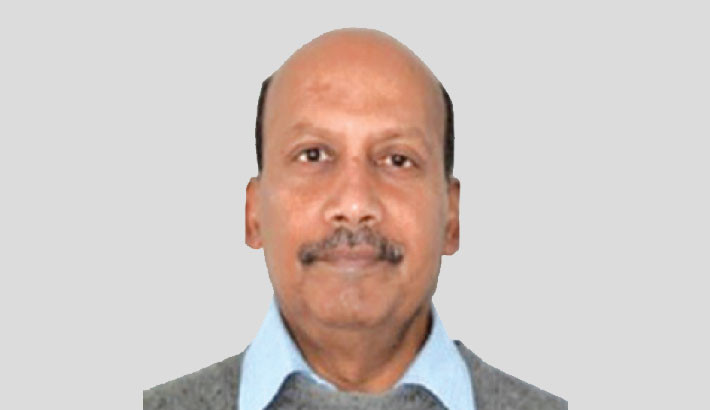
As we drive on the Dhaka-Chattogram highway, we see piles of plastics in several places on both sides of the highway. It is an ugly sight. In many places, they are burning plastic piles, releasing toxic fumes into the air. In many places, these plastic piles are seen next to ponds, affecting the quality of water and pond ecosystem. Plastic items are seen all over the land in major cities and towns. Plastics, especially Microplastics (MP), enter our food system through land, rivers, ponds, and the ocean. We throw plastics on the land as if any open land is our garbage disposal area. Our drains are clogged, causing waterlogging even after light rainfall. People do not realise that their unhealthy habits are causing major health problems for people including children.
The key question is what do we do to save our people and the country from plastic pollution?
We must find alternatives to single-use plastics. In 2002, the Bangladesh banned single-use plastic bags. Though initially got some success, implementation of the ban was relaxed later on. The interim government has now banned single-use plastics. However, to make it a success, some areas should get special focus. First of all, introducing a low-cost better alternative is paramount. People need options. We need to encourage plant-based biodegradable plastic production. Jute-made Sonali bags, which are bio-degradable, can be an option but are yet to see large-scale commercial production. Our entrepreneurs are using vegetables and plants to produce bio-degradable plastic-like materials but have not received major government support.
Second, we must educate our people about the menace of plastics, and plastic-generated fumes when we burn them. A major education programme will make people realise the health problems associated with plastics. We must educate people not to put plastics on the land as these will not be dissolved and will cause serious harm to the land's health. We should not throw plastics in ponds and rivers as that will cause serious problems for the water ecosystem.
Third, we must embark on a major national initiative to recycle plastics. This is done in major developed countries. We can learn from their experiences. There are options and initiatives for plastic recycling that are successfully implemented in these countries. Let us use the models that are successful.
Fourth, we need a harmonised and enforceable Bangladesh policy and regulatory framework that enables the transition. The laws must be enforceable with a strong monitoring system throughout the country. It will be the responsibility of all public sector leaders at the district and village levels to ensure compliance with government regulations. Legislative measures, such as mandatory recycled content targets and design for recycling guidelines, are critical for incentivising investment in waste management infrastructure and recycling technologies. The government has large procurement budgets, and we need to harness the economic power of public procurement by prioritising circular plastic content in public tenders. The trade and business associations in every city and town must embrace the policy of recycling plastics and reducing plastic pollution and waste.
Fifth, we should avoid putting plastic in the landfill. This temporary and easy method does serious harm to the land and environment. We are a small country and our land is fertile, and we must not destroy it by putting plastic in the ground. We must focus our investment and policy on recycling and transition. The transition will also require the plastics system to be redesigned using circular business models, design for recycling, new infrastructure and technical innovations; as well as major advances in the collection, sorting and recycling of plastic waste. These technologies and systems are now available.
Sixth, we need an evidence-based review of plastic pollution. Currently, we do not have a system to track plastic pollution and health hazards, and we do not collect sufficient data for analysis for data-driven decision-making. An extensive data collection and analysis system must be established with the help of the World Bank and international donors.
In 2021, Bangladesh with assistance from the World Bank launched a Multisectoral Action Plan for Sustainable Plastic Management to meet Sustainable Development Goals. It provided a blueprint for managing plastic pollution over three periods - short-term (2022-2023), medium-term (2024-2026), and long-term (2027-2030). The plan has promoted circular use of plastic based on a 3R strategy: Reduce, Reuse, Recycle. Reduction is a key strategy so that alternatives can enter the market and eventually replace single-use plastics. We also know that a circular economy will help create new value chains, green skills, employment and innovative products, contributing to better health and the environment. The plan calls for recycling 50% of plastics by 2025, phasing out targeted single-use plastic by 90% by 2026, and reducing plastic waste generation by 30% by 2030 from 2020/21 baseline. But it seems difficult for us to reach these targets. So, we need urgent actions to accelerate our 3R strategy to improve the health of our people.
We must have a plastics management system that continues to meet our needs in a sustainable way by reducing waste, resource use and greenhouse gas emissions. We must transition from a linear, fossil-fuel-based system to a circular plastics economy. We must adopt proven recycling technologies and plastics production from non-fossil feedstocks. In European countries, the packaging, building and construction, and agriculture sectors are making substantial progress in the use of recycled plastics, and we can learn from them. With closer collaboration between the government and the private sector, we have an opportunity to accelerate and lead the transition to a circular plastics economy. Our innovative youth population can lead this effort throughout the country.
_____________________________________
The writer is an international development expert based in Maryland, USA

